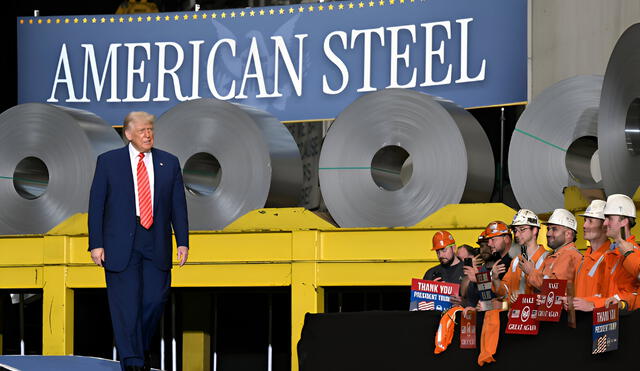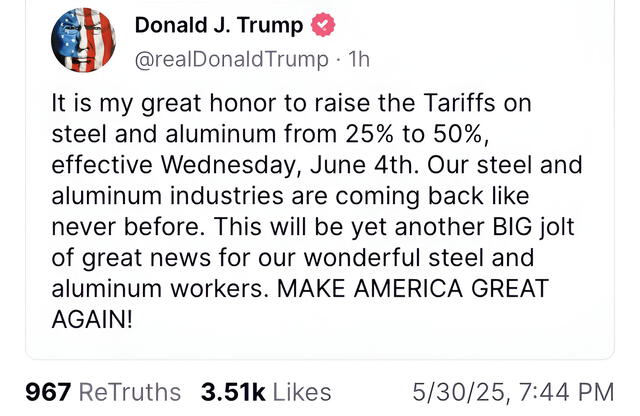Donald Trump confirms US Steel tariffs increase from 25% to 50%
In a bold move to boost American manufacturing, Trump doubles steel tariffs—fueling political debate, economic uncertainty, and global trade tensions in one sweeping announcement.

President Donald Trump has announced a significant increase in tariffs on foreign steel and aluminum to double the existing rate of 25% to 50%, from June 4, 2025. The announcement, which was made while speaking at a rally at Pennsylvania-based U.S. Steel's Irvin Plant, has the objective of shoring up the national steel industry and protecting American workers. Trump emphasized that the action has been taken to reduce the country's reliance on foreign steel and protect national security.
The news arrived when Trump declared his backing for a $14 billion investment deal between U.S. Steel and Japan's Nippon Steel. The agreement contains clauses for federal oversight and an American-dominated board, ensuring American control over U.S. Steel's operations, headquarters, and management. Nippon Steel will be investing massively in various states like Pennsylvania, Indiana, Alabama, Arkansas, and Minnesota.
Trump’s Steel tariffs raise union doubts and price concerns
Trump assured workers that no one would lose their jobs and assured every one of the U.S. Steel workers a $5,000 bonus, along with a 10-year guarantee to keep blast furnaces running. He described how the U.S. government would have a "golden share" for oversight, and U.S. people would own the company. Despite these assurances, the United Steelworkers union and union leaders were skeptical based on a lack of concrete details and concerns about Nippon Steel's history and its track record with America's trade regulations.
The increase in tariffs is also expected to influence prices across various industries that heavily depend on steel, such as housing and automobile production. Although the Trump administration refers to the agreement as a non-controlling joint venture, Pennsylvania officials, including Governor Josh Shapiro, have characterized it as an acquisition. The transaction, which was first vetoed by President Biden on grounds of national security, remains controversial among the stakeholders with uncertainties over its full impact and establishment.
Trump’s tariff hike sparks global backlash and trade war fears
Trump's move to double the tariffs was under fire from international trade partners. The Canadian Chamber of Commerce has denounced the hike in tariffs, and other countries issued threats of trade wars. The move is seen as part of Trump's broader strategy to promote economic nationalism and shield American industries.

Trump announces doubling steel tariffs to 50% starting June 4 at a Pennsylvania rally, following a $14.9B deal with Japan’s Nippon Steel. Photo: Donald Trump Truth Social account
Briefly, President Trump's move to double tariffs on aluminum and steel and to okay the U.S. Steel-Nippon Steel deal represents a huge policy in U.S. trade policy. The administration celebrates the move as a means of protecting American jobs and industry, while long-term effects on the economy and international trade relations are yet to be determined.













